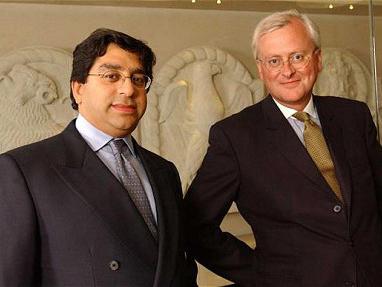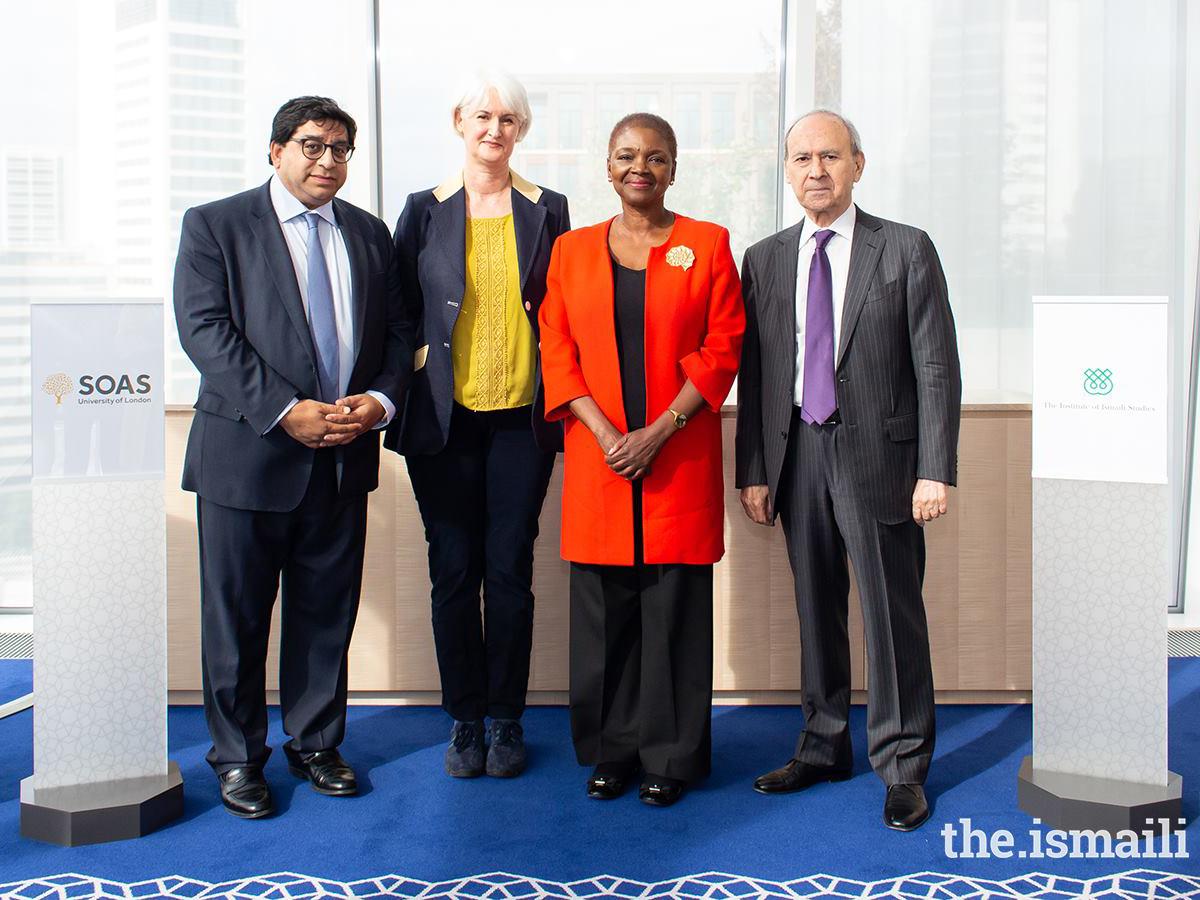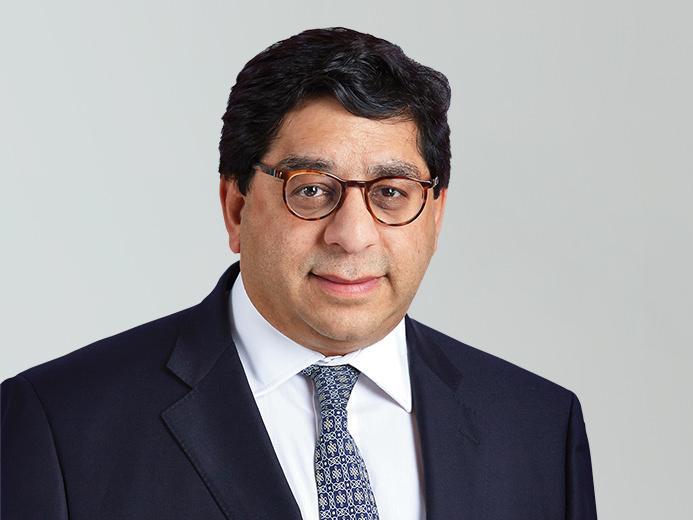
Naguib Kheraj is Vice Chairman of Barclays Bank PLC. He was previously a Director and Member of the Group Executive Committee of Barclays PLC, where he served in a number of senior roles between 1997 and 2007 including Group Finance Director and various business line management positions in Wealth Management, Institutional Asset Management and Investment Banking.
Mr Kheraj was formerly Chief Executive Officer of JPMorgan Cazenove and has also held senior positions at Lazard, Robert Fleming and at Salomon Brothers in London where he started his banking career in 1986.
Mr Kheraj spends the majority of his time in the not-for-profit sector and serves on a number of international boards within the Aga Khan Development Network in the fields of education, healthcare, rural development and culture and is Chairman of its endowment fund. Mr Kheraj is a Member of the Investment Committee of Wellcome Trust and a Member of the Board of the UK-US Fulbright Commission.
Mr Kheraj has served as a Senior Adviser to Her Majesty’s Customs and Revenue Service and to the Financial Services Authority in the UK and as a Member of the Development Board of The Prince’s Trust.
Courtsey: www.aku.edu
Naguib Kheraj is the first to admit that he is an unlikely finance director. The 40-year-old started his career as a hotshot dealmaker in the testosterone-charged world of Salomon Brothers on Wall Street in the 80s, before ending up as the chief number-cruncher at Barclays Bank.
"What you miss [after you've] worked in investment banking is that you have much more highs and lows," he says.
"I was very happy as a corporate finance banker doing 120 hours for a few weeks and then dossing around for a few days. As a finance director you can't do that, you have to operate at more of an even keel. I've learnt to cope with it but my personal biorhythm means that I have days that are hugely productive and days that are not. When I'm feeling unproductive it's best not to fight it, so I do things I can do when I'm in that frame of mind.
"Because my demeanour is low-key, they don't see underneath it that I'm going up and down all the time."
This seems to be a fair assessment. His voice maintains an even, steady pitch throughout the interview, although colleagues identify his anger when the volume of his voice lowers ever so slightly.
Hard to believe, perhaps, that Kheraj was at Salomon Brothers at the time it was depicted by Michael Lewis in his portrait of Wall Street excess, Liar's Poker. The author painted a grisly picture of life inside the investment bank: millions of dollars gambled as if they were pennies, in complex trades that no one really understood. The novel - and hence Salomon - came to immortalise the phrase "Big Swinging Dick".
So was it really like that? "No," says Kheraj. "I know many of the people he was writing about. Michael's book is a very entertaining read but to make it an entertaining read you've got to put a bit of amplification in.
Advertisement
"It was a fun place to work and you did have real characters there. Business has got a bit blander now."
Kheraj, who was born in London and largely educated in Britain but who describes himself as having grown up in east Africa, Switzerland, Pakistan and the Middle East, joined Salomon with a double first from Cambridge.
After a couple of years as a dealmaker, he was promoted to chief financial officer at Salomon in London at the age of 28. His mandate was to help sort out a bank that had been taken to the verge of collapse by a US treasury bond scandal and by accounting irregularities at its London arm, forcing huge profits to be written off.
A non-executive member of the audit committee at the time was Warren Buffett, the renowned investor. "The pressure really was quite extreme," he admits, with clear understatement.
By comparison, the pressure on him now - as a young, successful professional with a seat on the board of a FTSE 100 company and, even more unusually, from an ethnic minority - pales into insignificance.
Kheraj, a Muslim and member of the Ismaili community and an adviser to the Aga Khan, insists that his background has not made any difference at all to his working life.
"[But] I would say I don't think of myself as the same as my white England colleagues because I have a lot in my background and identity that has strong ties to the east. So it doesn't feel like I'm completely like my English colleagues. But I am perfectly comfortable in this environment," he says.
Meritocratic
He recently complained to Trevor Philips, the chairman of the Commission for Racial Equality, who had described Barclays' record on racial promotion as a "snowy peak with one exception", that he was being too quick to judge. "What I said to him is that it's a big assumption to make that because [executive colleagues] John Varley, Bob Diamond and Gary Hoffman are all white that they're all the same. They couldn't be more different," he says.
Varley, who is now chief executive at Barclays, is an upper-crust Englishman. Diamond is an aggressive American who runs the investment bank Barclays Capital and Hoffman is the gruff Barclaycard boss, who grew up in the Midlands.
Kheraj was just 16 when forging his first association with Barclays - following his father's footsteps in opening an account at the bank. Kheraj also had a Barclaycard from a young age: "My parents were abroad and they wanted me to be able to spend in an emergency," he says.
His working life at Barclays started in 1998 at BZW, the investment bank that mutated into Barclays Capital, before skipping through a variety of posts. He joined the bank's main board as finance director in January last year.
Kheraj says he has never knowingly suffered racial prejudice at work and puts this down to the meritocratic nature of the modern City, although others in the Square Mile note that there remains a steady stream of sex and race discrimination cases coming out of the financial arena in recent years.
"The financial services industry is particularly meritocratic. If you go back to where I started - an American investment bank - that really is the ultimate meritocracy," says Kheraj, who spent one year at the family-run investment bank Robert Fleming.



Outside his banking career, Kheraj, who has a baby son, is a fundraiser for the Prince's Trust and urges successful Asians to back the cause to help disadvantaged young people. He's also a trustee of the Institute of Ismaili Studies and feels a sense of purpose and honour - particularly as it involves working directly with the Aga Khan - in trying to improve the quality of educational materials about Islam and Muslims in general.
"There are perceptions that all Muslims must be al-Qaida terrorists, which is about as preposterous as saying that all Irish people must be terrorists. That is a commonly held perception. People don't understand the diversity that exists in terms of ethnicity and belief and practice within the broader Muslim community," he says.
"If you look at what most religions stand for, aside from a belief in a higher being, the common theme you find in all religions is a code of ethics and morals and standards of behaviour of respecting human beings and treating them properly," he says.
This is equally relevant in business. Customers who are treated well and employees who are motivated are all good for business, he says.
Kheraj has little time for criticism about the size of profits racked up by banks and other big companies. Barclays reported a record profit of £4.6bn in 2004 and rival banks have also produced record figures.
Neither is he too worried about recent concerns in the City over Barclay's performance. Analysts point to rising costs at Barclays, which is ploughing money into its retail arm and also its investment banking division. Barclays Capital hired 2,000 new people in 2004 and some have questioned whether this division can really sustain the rate of expansion seen in recent years. Barclays is also likely to be braced for fresh criticism about the price it may have to pay to achieve its goal of taking a major stake in the South African bank Absa.
"My attitude is that if you work hard to explain things and if you are actually propagating a cause that is right and well thought-out and argued, eventually intelligent people will come round.
"That's not to say that I want to go round and indoctrinate people, but it's saying if you have a legitimate point of view and you articulate it properly other people should understand it."
The CV
Born: July 15 1964
Education: Dulwich College, London, and Robinson College, Cambridge, where he graduated with a degree in economics
Career: Joined the investment banking division of Salomon Brothers in 1986, appointed chief financial officer in 1993. Left Salomon Brothers in 1996. Became co-head of global capital markets and a member of the executive committee at Robert Fleming. Joined Barclays in 1997 and worked in both Barclays Capital and Barclays Global Investors. Became chief executive of Barclays Private Clients in 2003. Group finance director of Barclays plc from January 1 2004
Family: Married with one son
Interests: Member of the board of governors of the Institute of Ismaili Studies, an educational institution that promotes scholarship and learning on Islam. Also sits on the development board of the Prince's Trust
Courtesy: theguardian.com